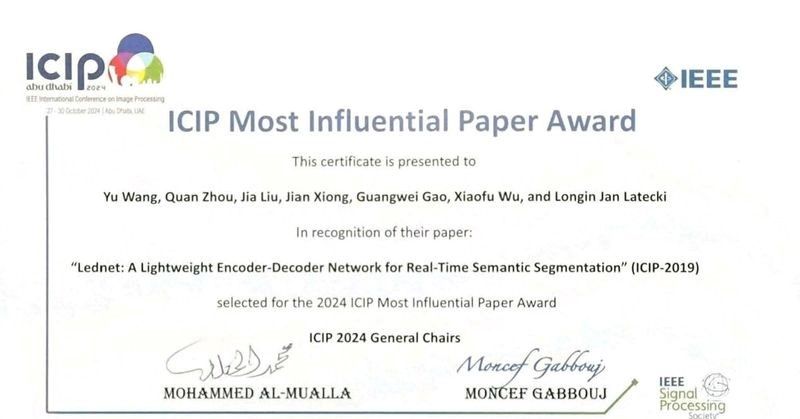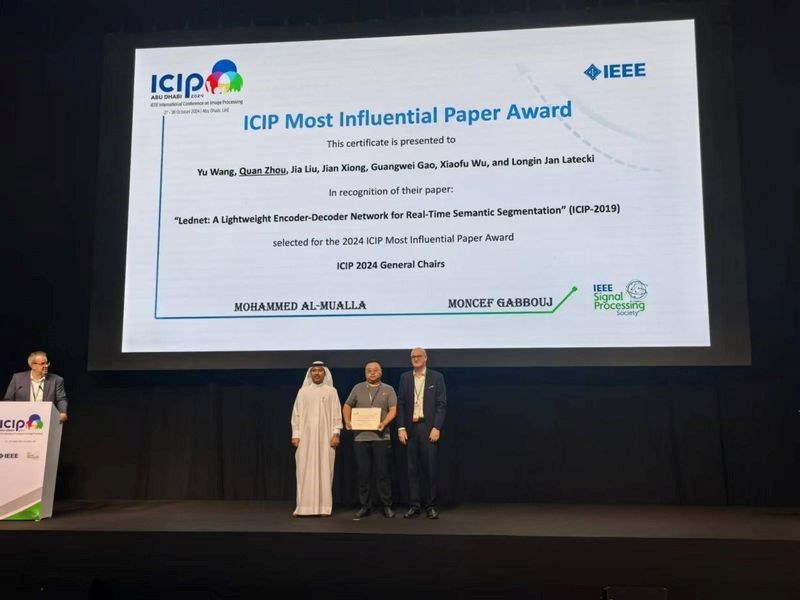Recently, the paper “LEDNet: A Lightweight Encoder-Decoder Network for Real- Time Semantic Segmentation” won the 2024 IEEE International Conference on Image Processing Most Influential Paper Award, and was the only academic paper to win the award. Prof. Quan Zhou of College of Telecommunications & Information Engineering is the sole corresponding author of the paper, and the first author of the paper is Yu Wang, a 2020 master's degree graduate of our university.

NJUPT Prof. Zhou Quan's paper won the Most Influential Paper Award of IEEE ICIP
The President of the conference, Prof. Moncef Gabbouj, Member of the European Academy of Sciences, Member of the Finnish Academy of Sciences, Fellow of the IEEE, and recipient of the Chinese Government Friendship Award, Prof. Moncef Gabbouj of the University of Tampere, Finland, and Prof. Mohamed Al-Mualla, Undersecretary of the Ministry of Education of the UAE, presented the award to Prof. Zhou Quan.

Award Ceremony
The IEEE ICIP Most Influential Paper Award is given to the paper with the highest number of citations out of all papers presented at the conference within the last five years. This is the first time this award will be given by IEEE ICIP in 2024, and only one paper has won the award. Prof. Quan Zhou's team paper proposes a lightweight asymmetric encoder-decoder network architecture for the first time to solve the difficulty of modeling semantic segmentation tasks using convolutional neural networks in mobile devices, which can be widely used in the fields of automated driving, remote sensing of drones and robot vision.
IEEE ICIP is one of the most influential and authoritative academic conferences in the field of image processing, which is organized annually by IEEE Signal Processing Society (IEEE SPS). The conference aims to provide a platform for experts, scholars, engineers and researchers in the field of image processing to exchange the latest research results, discuss the technology trends and explore the application prospects.IEEE ICIP covers various subfields of image processing research, including but not limited to image and video data recovery, enhancement, denoising, segmentation, compression, transmission, recognition, analysis and understanding.
(Written by Zhou Quan, Initially Reviewed by Guo Yongan, Dai Xiubin, Edited by Wang Cunhong, Reviewed by Zhang Feng)



